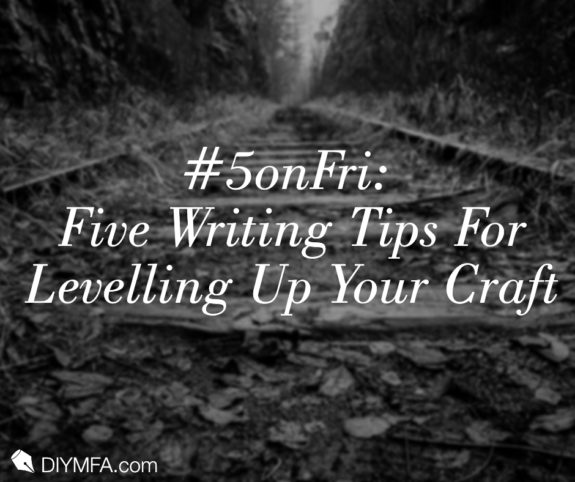There are over six million Kindle books published on Amazon. Only a small percentage will be bestsellers. As an author, it’s up to you to make your book stand out. Sure, marketing and branding help you sell more books, but the best way to sell books is to write the best one possible.
In this article, we’ll look at five writing tips–or, depending on how you operate, editing tips–to become a better author.
1) Use Adverbs Sparingly
One of my favorite authors, Stephen King, has a saying, “The road to hell is paved with adverbs”. While you may not be paving your road to hell by using adverbs, you’re certainly paving yourself to a boring writing style.
Back when we took early English classes, your teachers would have told you that an adverb describes verbs and adjectives. On the surface, this sounds like a great tool to use in your writing.
Here’s the truth: adverbs weaken your writing. Rather than carefully constructing a sentence, you’re taking the easy way out and using an “-ly” word to add a quick description.
But there’s hope. You can do something to improve your prose. Look for the adverbs in your writing and ask yourself if they deserve to be there. In most cases, you’ll be able to add a more descriptive verb. For example, instead of the dog “barking loudly” it can “howl” or “roar.”
Am I saying to never use an adverb? No. Here’s an example of Apple using one on a sales page, and Apple has obviously been very successful.
I’m just saying that your writing will be better once you remove unnecessary adverbs and replace them with stronger verbs or more descriptive language.
2) Get Rid of Crutch Words
Crutch words are those words and phrases that you rely on too much in your writing. Sometimes, you reach for your crutches when you don’t need them…
You’re probably most familiar with conversational crutch words we lean on when we’re speaking:
- Like: “I was, like, going to ask if you’d like to go to lunch.”
- Well: “Well, that was a lot better than I thought it would be.”
- You know: “It’s not up to me, you know.”
- Literally: “Today was literally the slowest workday.”
- Obviously: “I’m obviously very happy with how everything is going.”
When you’re thinking on your feet in a conversation, these crutch words are handy conversation fillers. In writing though, they’re repetitive and can annoy readers when used outside of dialogue. Here’s a list of common crutch words that authors use if you’d like some examples.
Crutch words are usually redundant, and they’re often unique to an author. It all depends on your voice. A few examples of mine are:
- Still
- In fact
- Very much
- My way
- Just
- Halt
- Eye
- Gaze
- Laugh
- Clearly
If you’re writing a conversational blog post, there is a bit of scope to use crutch words–after all, you’re trying to make the article read like you’re having a conversation. When you’re writing a novel though, you need to be aware of every word you add and consider its relevance.
Once you know what your go-to crutch words are, make sure you aren’t using them too much. I like to ctrl+f and search for my crutch words in my first draft. Then, I can consider re-writing those sentences and using stronger word choices.
3) Start Your Story With Action, Not Backstory
One of the things I love about being a fiction author is creating an entire world of my own. Each character has their own individual background and story to tell. Talking about it now makes me want to start writing again!
If you’re like me, you’re probably bursting at the seams to tell your reader about the characters you’ve created. It’s so tempting to start a story by giving the reader a huge infodump of background about the characters or the setting. However, it’s a far better strategy to start your novel with some action to hook the reader in.
The main reason you want to start your story with action is to engage your reader as soon as possible. The earlier you hook the reader in, the more likely they are to keep reading. For self-publishers, this is more important than ever for a couple of reasons.
- For starters, all Kindle books sold on Amazon have a ‘Look Inside’ feature. This option is shown above the cover image of the book.
When a potential reader clicks the link, they’re shown a preview of the book, which is usually around the first 10%. A compelling first page will turn browsers into readers.
With Kindle Unlimited (KU), you want to generate as many read pages as possible. There are a lot of KU subscribers that simply grab three or four books at a time and flick through a few chapters before deciding which one is worth reading.
You don’t want to waste your first impression by giving your reader backstory that will slow the book’s pace down. If you need to get that history down on the page, write an entire chapter of it before you start your story. Then, you can intersperse parts (or all) of the background chapter throughout your story when you see fit.
Of course, the action must be related to your character’s conflict or pain point. Action for action’s sake won’t work.
4) Remove Redundant Words
Similar to your personal crutch words, when you’re writing, there are other words that should hit the cutting room floor. These are redundant words that add nothing to the novel. Removing them will make your writing sharper and easier to read.
Diana Urban has a super list of redundant phrases to cut from your novel.
- Really, very. These are useless modifiers. Instead of these words, use stronger language choices.
- That. “That” is a word you can delete if a sentence makes sense without it. For example “It was the best movie that I’d seen all year,” can easily read “it was the best movie I’d seen all year.”
- Then. When I see a passage that includes overuse of the word “then,” I imagine a five-year-old telling you about their day. “First I woke up then I had breakfast, then I had a bath.”
- Totally, completely, absolutely, literally. Rather than use words like these, use stronger language. Instead of saying the character was “completely sure,” you can say they were “positive.”
- Definitely, certainly, probably, actually, basically, virtually. In the same way to the last point, these words don’t add anything. Remove them or use stronger language.
- Rather, quite, somewhat, somehow. These words make you appear less confident in your work. You don’t have to call something “rather boring,” you can just call it boring!
Forge on Medium also has a great list of redundant phrases where two words are used when only one is needed. For example, you don’t need the phrase “end result.” When else will the result be? And unless you start falling upward, you probably don’t have to use the phrase “fall down.”
Once you’ve got a list of redundant phrases you use, run a ctrl+f search on your document and highlight the words so you can check if each one is needed or not.
5) Avoid Cliches Phrases
We’re all familiar with cliched phrases used in writing:
- Play your cards right
- Read between the lines
- It’s an uphill battle
- The grass is always greener on the other side
- Better safe than sorry
- Ignorance is bliss
- You can’t judge a book by its cover
- Bring to the table
- Low-hanging fruit
These sayings have been used so many times over the years, they’ve kind of lost all meaning. Common cliches don’t evoke a mental image when you’re reading. Not only that, but the use of cliches is lazy writing. When I see an overuse of cliches, I notice it and so do many other readers.
Find new ways to say things. The use of specific language and examples in your writing will add to the mental image the reader is putting together, not take away from it as a cliche does.
There is an awesome list of cliches that you should look at from my friends at ProWritingAid. Check what phrases you use in your work, and replace them with alternatives.
Final Thoughts
Simple changes to your writing can make a world of difference, making your book easier to read and strengthening your story. Follow these tips as a way to engage fans with your work and stand out from all those other books on Amazon.
And remember, you don’t have to get all of these things right while you’re writing. In fact, you’ll write much faster if you don’t worry about them at first. You can always fix them while you’re editing.

Dave Chesson is a book marketing obsessive who has consulted for various NYT Bestselling authors. He shares his latest ideas at Kindlepreneur.com, such as his recent guide to book writing software, and also hosts The Book Marketing Show podcast.







